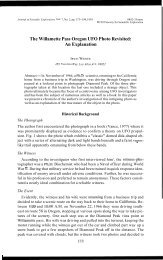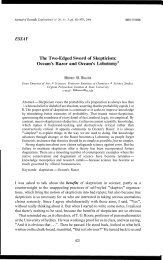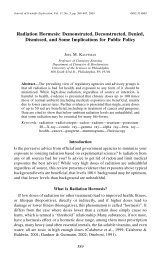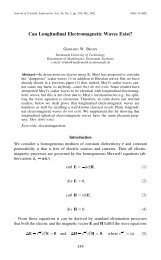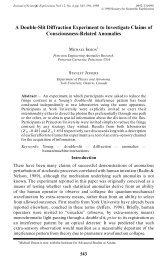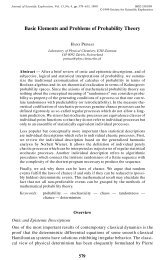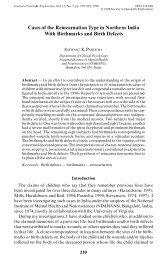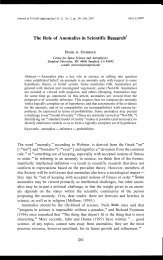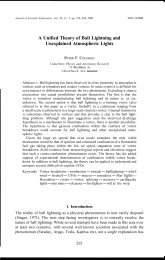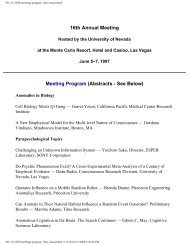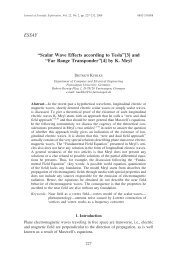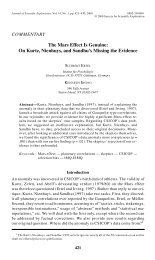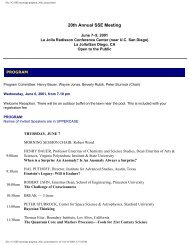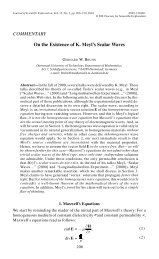REVIEW ARTICLE Ufology: What Have We Learned? - Society for ...
REVIEW ARTICLE Ufology: What Have We Learned? - Society for ...
REVIEW ARTICLE Ufology: What Have We Learned? - Society for ...
Create successful ePaper yourself
Turn your PDF publications into a flip-book with our unique Google optimized e-Paper software.
558 M. D. Swords<br />
Fig. 10. Robert Low, the real administrator of the Colorado Project, and surprisingly open-minded<br />
about UFOs. (U. Colorado)<br />
got a guy renovating my bathroom right now that 1'11 put my money on if the<br />
topic is plumbing, carpentry, electrical wiring, tiling, architecture, and a whole<br />
host of things similar (plus he's a Master's degree in elderly health care, so<br />
I could write another long list). The point is, of course, just because one claims<br />
to be a "scientist," one doesn't know everything, one doesn't know everything<br />
that's associated with "science," and one may well not have a very good handle<br />
on everything in the textbooks of "one's own science." And, ufology is not in<br />
anyone's curriculum of training. No one knows anything of substance about<br />
ufology who hasn't made a significant personal ef<strong>for</strong>t to do so. There<strong>for</strong>e, one<br />
would think (naively) that very few "scientists" would think that they have the<br />
right to much of an opinion about ufology. But . . . ha, ha.<br />
One thing that separates "scientists" (on average) from a typical Joe-on-thestreet-<br />
corner is that a scientist-type is usually a very analytical-oriented<br />
mentality, whether he has any other excellent intellectual skill or not. Such<br />
a person enjoys dicing up complex-sounding puzzles, seeing something "the<br />
others" didn't, and proudly announcing the fruits of this "insight." Some<br />
scientists have enough social intelligence to handle these egocentric rushes and<br />
some are just insufferable, but a lot of "scientists" get into the habit of being<br />
"right" and liking it.<br />
<strong>We</strong>ll, that may be fine if one would stick mostly to what one knows and<br />
maintain a significant attitude of collegiality, but we all know that many of our<br />
highly educated associates (and ourselves, if we are honest) at least occasionally<br />
diverge from the ideal of objectivity, unemotionality, and tolerance of<br />
ambiguity. Many of us not only want to be right, but we really, really don't want<br />
to be wrong. Being fooled is as bad as it gets. Being an "irrational scientist,"<br />
a "flaky scientist," a "pseudoscientist"-why, that's being nothing at all. And,<br />
when one adds to the absolute need to never be seen as a fool, the inculcated<br />
and welcomed self-image of being "The Answer Man," one has to get one's



